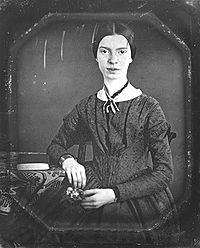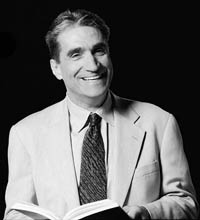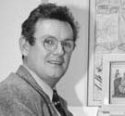Sadly, Helen Vendler has just died on April 23, 2024, at ninety years of age. I’m so glad I got a chance to meet her.
Note: This interview was broadcast on the WGBH sister stations WCAI/WNAN, Prairie Public Radio, WABE in Atlanta and on KUT in Austin, Texas.
 When Helen Vendler was only 13, the future poetry critic and Harvard professor memorized several of Emily Dickinson’s more famous poems. They’ve stayed with her over the years, and today, she talks with ThoughtCast’s Jenny Attiyeh about one poem in particular that’s haunted her all this time. It’s called I cannot live with You-
When Helen Vendler was only 13, the future poetry critic and Harvard professor memorized several of Emily Dickinson’s more famous poems. They’ve stayed with her over the years, and today, she talks with ThoughtCast’s Jenny Attiyeh about one poem in particular that’s haunted her all this time. It’s called I cannot live with You-
According to Vendler, who has written the authoritative Dickinson: Selected Poems and Commentaries, it’s a heartbreaking poem of an unresolvable dilemma and ensuing despair.
Click here  (18 minutes) to listen!
(18 minutes) to listen!
This interview is the first in a new ThoughtCast series which examines a specific piece of writing — be it a poem, play, novel, short story, work of non-fiction or scrap of papyrus — that’s had a significant influence on the interviewee, that’s shaped and moved them.
Up next – esteemed novelist and short story writer Tom Perrotta discusses Good Country People, a short story by Flannery O’Connor that’s particularly meaningful to him.
Podcast: Play in new window | Download
Subscribe: RSS

 Former poet laureate Robert Pinsky tackles King David of the Bible – the shepherd, poet, warrior and adulterer – in his “Life of David.”
Former poet laureate Robert Pinsky tackles King David of the Bible – the shepherd, poet, warrior and adulterer – in his “Life of David.”

 Noted Cambridge poet David Ferry has recently translated Virgil’s Georgics, and on ThoughtCast he joins Virgil scholar Richard Thomas, the chair of Harvard’s Classics Dept., for a detailed examination of this beautiful and insufficiently known poem. It is said to have taken Virgil 7 years to write, from about 36 to 29 B.C.
Noted Cambridge poet David Ferry has recently translated Virgil’s Georgics, and on ThoughtCast he joins Virgil scholar Richard Thomas, the chair of Harvard’s Classics Dept., for a detailed examination of this beautiful and insufficiently known poem. It is said to have taken Virgil 7 years to write, from about 36 to 29 B.C. As such, The Georgics was written during a period of political instability and chronic civil war, and inevitably reflects Virgil’s dark, often pessimistic outlook on human nature. But at the same time, The Georgics (which means “agriculture” in Greek), is a celebration of nature and its ceaseless beauty. As Virgil describes the cycles of crops, the seasons, the weather — the birth, death and rebirth that mark the natural world — he provides us with a complex, realistic, painful but enduringly uplifting poem.
As such, The Georgics was written during a period of political instability and chronic civil war, and inevitably reflects Virgil’s dark, often pessimistic outlook on human nature. But at the same time, The Georgics (which means “agriculture” in Greek), is a celebration of nature and its ceaseless beauty. As Virgil describes the cycles of crops, the seasons, the weather — the birth, death and rebirth that mark the natural world — he provides us with a complex, realistic, painful but enduringly uplifting poem.